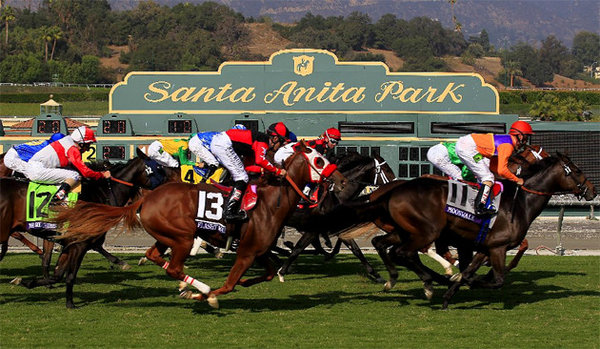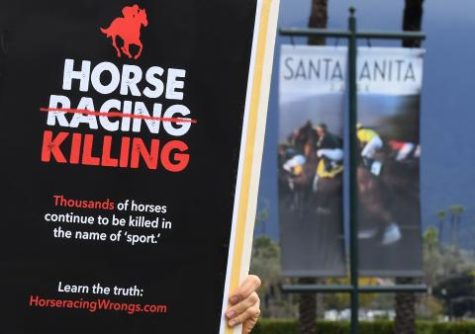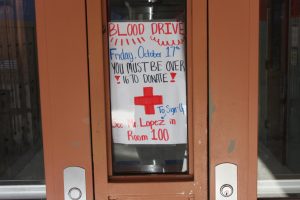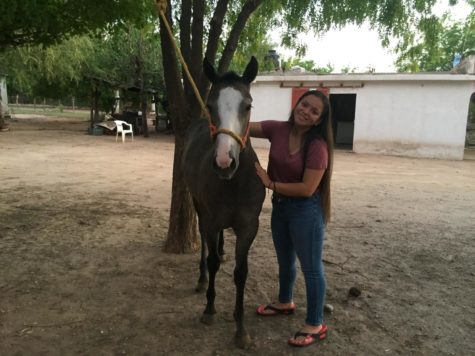23 Racehorses Die in Santa Ana California

April 4, 2019
Starting December 26th the Santa Anita racetrack officially began their winter season. The race track stayed open until March 3, then closed. During this three month time period, 22 racehorses died on that track. After the deaths started to pile up animal activists went to the track holding posters saying “Horse Killing” and “Horseracing Kills Horses.” “Something is drastically wrong. I’ve been around a long time and have never seen this,” said Art Sherman, a horse trainer. Authorities announced the closing of the track and reported that they would initiate new rules to improve the safety of the horses and riders. Initially it was believed that the heavy winter and excessive rain in the area had affected the horses’ lungs or breathing rate.
The race track stayed open until March 3, then closed. During this three month time period, 22 racehorses died on that track. After the deaths started to pile up animal activists went to the track holding posters saying “Horse Killing” and “Horseracing Kills Horses.” “Something is drastically wrong. I’ve been around a long time and have never seen this,” said Art Sherman, a horse trainer. Authorities announced the closing of the track and reported that they would initiate new rules to improve the safety of the horses and riders. Initially it was believed that the heavy winter and excessive rain in the area had affected the horses’ lungs or breathing rate.
Two days after the track re-opened, two horses were involved in an accident while only on a practice run. A horse named Arm Runner fell on the track and a filly that was shortly behind him fell also. She was able to get up and walk back to the stables, however Arms Runner had to be euthanized. The track sent out this statement, “While this incident happened during competition on a track that has been deemed by independent experts to be safe, we are working closely with the California Horse Racing Board to understand if there was anything additional that we could have done to prevent today’s tragedy.” Almost all of the accidents have happened on the same area of the track, which is leading lots of people to suspect that even though experts said it was safe, in reality it’s not. The track also reported they worked on the dirt to make sure it was in perfect racing conditions before the accident happened.
It is still unknown how these accidents are occurring, but owners and trainers are working closely with the California horse racing board, to bring the safest racing experience possible. The Santa Anita racetrack is owned by a company named The Stronach Group who immediately announced that the amount of anti-bleeding medication, Lasix, given to the horses on race days would be reduced. The group is also working on another rule stating that the use of whips will be prohibited unless a horse or a jockey’s life is in danger. “Without our athletes, without our most precious asset, there is no sport.”











